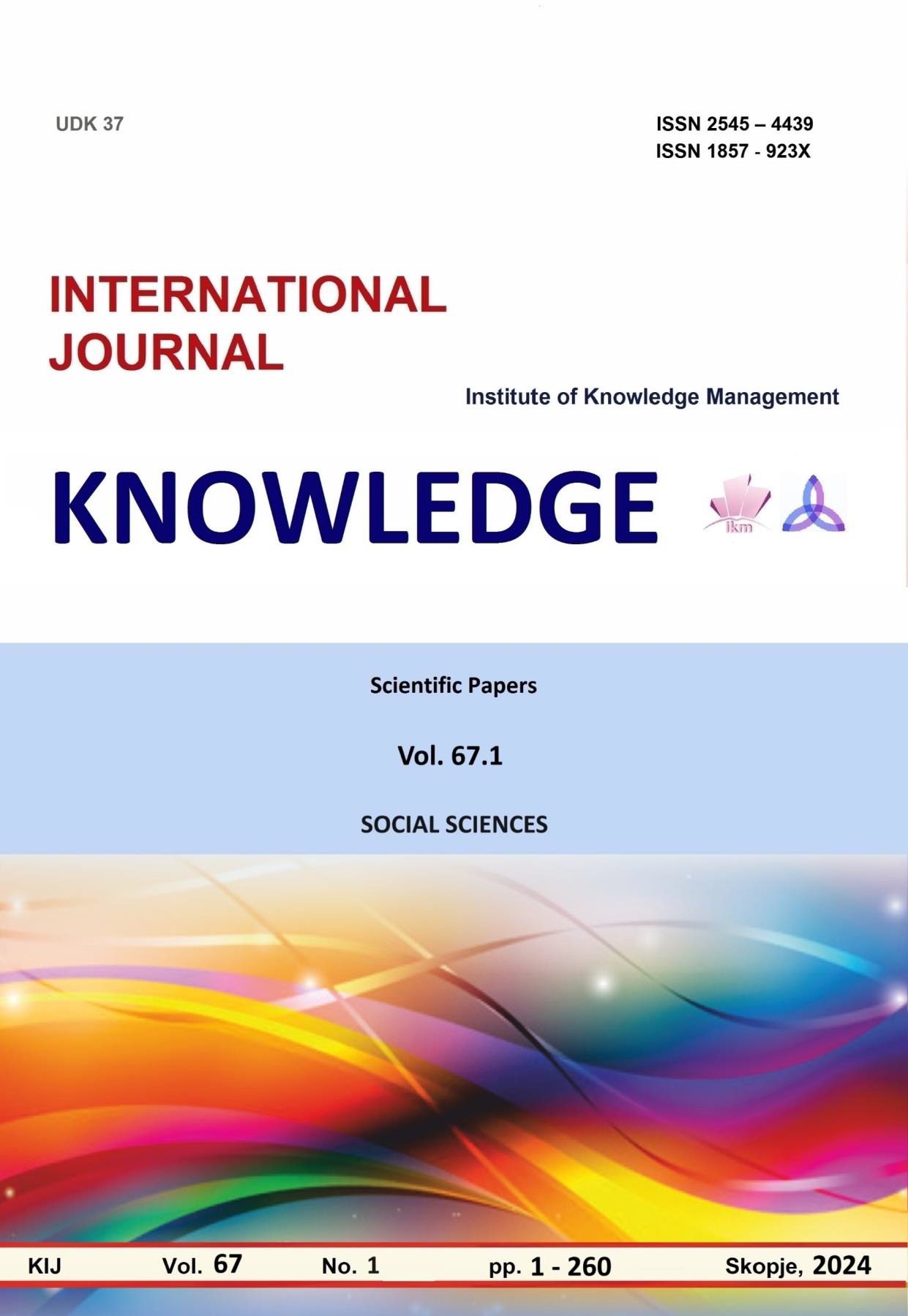THE ROLE OF EMOTIONAL INTELLIGENCE AND IT'S IMPLICATION IN CAREER DECISION MAKING: A CASE STUDY IN ALBANIAN HIGH-SCHOOL STUDENTS
THE ROLE OF EMOTIONAL INTELLIGENCE AND IT'S IMPLICATION IN CAREER DECISION MAKING: A CASE STUDY IN ALBANIAN HIGH-SCHOOL STUDENTS
Author(s): Etleva Haxhihyseni, Aurora BINJAKU, Eneda SalaSubject(s): Social Sciences, Education
Published by: Scientific Institute of Management and Knowledge
Keywords: Emotional Intelligence scales;decision-making dimensions;psychometric test;linear regression
Summary/Abstract: Decision making is a complex process that involves evaluating multiple options and choosing the best course of action. Adolescents must make several decisions that significantly affect their future, including choices about study programs, interpersonal relationships, and activities that affect their well-being. The capacity to balance the options and predict outcomes is a difficult function for adolescent’s decision-making. Considering the dimensions of decision-making process: the rational one, intuitive, dependent, avoidant and spontaneous even the intertwining between them, it's important to understand and to empower the right one. The rationality of choices about their future seems to enable young people to make better. However, social and emotional aspects can influence the decision-making process. They may make choices with long-term consequences based on impulsive actions or raw and uncontrolled emotions. Emotional intelligence can be part of the personal and interpersonal traits that help in the efficient control of positive and negative emotions. EI can be measured through psychometric tests and can be categorized into 6 levels according to the Schutte Emotional Intelligence Scale (SEIS). The purpose of the study is to identify the impact and implications of emotional intelligence on decision-making styles among adolescents. Research questions are raised to support the aim and literature review, to guide and check whether a strong emotional intelligence fit can help an individual adopt a rational approach to decisions. Quantitative data were collected through a questionnaire distributed to 110 Albanian high school students, 70 of whom are female and 40 males. A psychometric test was used to assess emotional intelligence where answers are given through a Likert scale. The questions cover the 6 factors of emotional intelligence: (1) Understanding own emotions (2) Understanding others' emotions (3) Expressing emotions (4) Regulating own emotions (5) Regulating others' emotions (6) Using emotions in solving the problem. Evaluation of decision-making is carried out through testing by Scott and Bruce. Descriptive statistics are used to gather information about the distribution of data. Linear regression was used to find the effect of emotional intelligence on rational decision making, including career decisions. Empirical research shows that emotional intelligence has a positive effect on rational decision-making. Correlation was used to measure the degree of association between decision-making dimensions and emotional intelligence factors. A higher correlation was found between the variable of rational decision-making and the variables: regulation of own emotions and regulation of others' emotions.
Journal: Knowledge - International Journal
- Issue Year: 67/2024
- Issue No: 1
- Page Range: 245-250
- Page Count: 6
- Language: English

